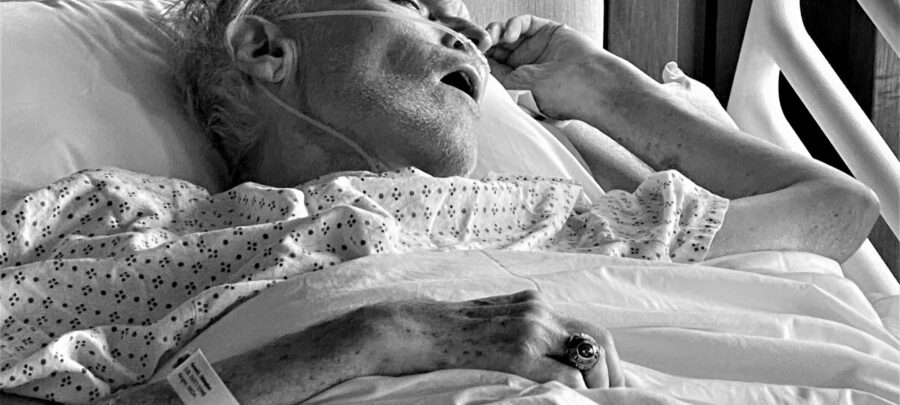It happened again last Monday. I had the privilege of being present at the moment of another person’s death.
I had one hand gently resting on the man’s chest. My other hand was lightly stroking his hair. His respirations slowed and grew more irregular. My hands stopped moving, and I waited. The world grew utterly quiet and still. And in that stillness, the breath did not return.
This scenario has now repeated itself countless times in my career, in much this same sequence. And yet each time it happens, the experience feels startling and new.
The timing remains mysterious to me. The man who died in my arms on Monday was not expected to die so quickly. The signs we look for were not yet there. His extremities were still warm. He did not have classic mottling. His kidneys were still working. And yet he chose that moment to take leave of his body.
What I know about being present at the moment of death is not profound or grounded in science. But I believe it has something to do with an intersection between the dying person’s readiness and a favorable moment of spaciousness. Whether the dying person is ready or not is never up to us. But we can create spacious moments to meet them wherever they are.
We create space when we arrive at the bedside without expectation or agenda.
We create space when we focus not on the inhalation or the exhalation, but the gap in between.
We create space when we open a window or a patio door.
And we create space when we settle into the quiet, rather than filling the space with our words.
After the nurse confirmed time of death on Monday, I had to sit for a minute to let the experience settle in my bones. Any of you who have been present for this moment know what I’m talking about. It is not a moment to hurry through. Sobering to the core, piercingly sad and achingly beautiful, somehow in equal measure. Being present, being truly present, means we get to feel it all. Every single time.
-By Cindy


